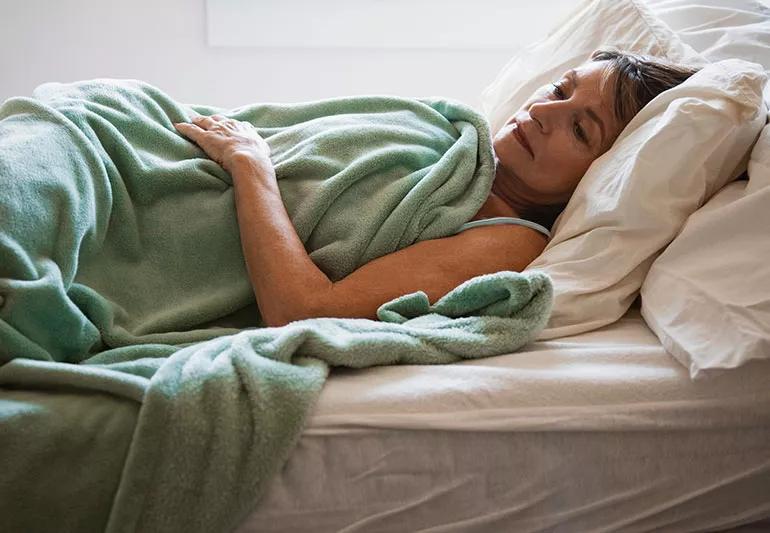The short answer from a cardiovascular researcher

Image content: This image is available to view online.
View image online (https://assets.clevelandclinic.org/transform/1855bf1c-88e2-4744-b5e9-1c85037d5019/aFib-85471703-770x533-1_jpg)
Person laying in bed looking concerned
A: It’s not uncommon for atrial fibrillation (AFib) to occur at night. The nerves that control your heart rate typically are in sleep mode, and that’s when your resting heart rate drops. Under these conditions, pacemaker activity from areas other than the normal pacemaker in the heart can trigger the onset of AFib.
Advertisement
Cleveland Clinic is a non-profit academic medical center. Advertising on our site helps support our mission. We do not endorse non-Cleveland Clinic products or services. Policy
In addition, many patients with AFib have an underlying issue of obstructive or central sleep apnea. If you are frequently sleepy during the daytime, that is especially likely to be the case. If you suffer from AFib, sleep apnea can disrupt the heart’s rhythms. This is a dangerous combination.
To help treat sleep apnea, your doctor may recommend continuous positive airway pressure (CPAP) or other devices that may help to reduce the frequency and burden of AFib.
— Researcher David Van Wagoner, PhD
Advertisement

Sign up for our Health Essentials emails for expert guidance on nutrition, fitness, sleep, skin care and more.
Learn more about our editorial process.
Advertisement
Opt for plant-based foods and consider limiting alcohol and caffeine
Having atrial fibrillation increases your risk of stroke — but blood thinners can help for many people
Making healthy lifestyle changes ahead of surgery can help you avoid AFib after
Knowing the facts can make all the difference
Sleep masks can help you create total darkness so you can sleep better
To avoid sleep deprivation and shift work sleep disorder, try adopting habits that minimize light exposure and prioritize daytime sleep
Sleep disorders, mental health conditions and other health concerns can all affect the quality of your sleep
Most people fall asleep within 10 to 20 minutes, but if your experience is different, adjusting your sleep schedule may help
Although it could be used as a moisturizer, this new trend is not recommended
Communicating clear limits helps protect your time, energy and emotional well-being
High cholesterol can be genetic, but testing and treatment can lower your heart disease risk